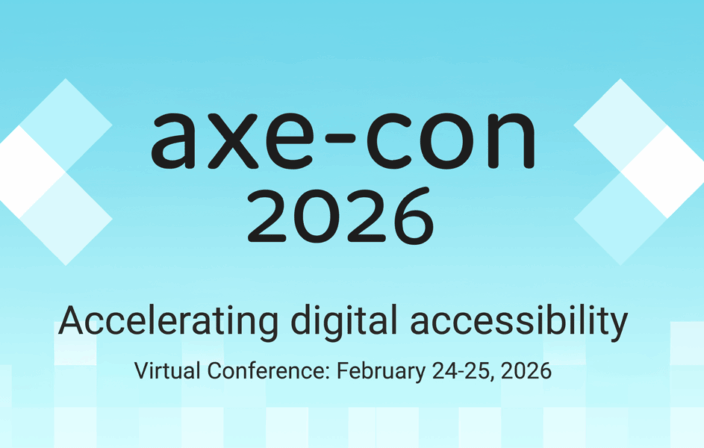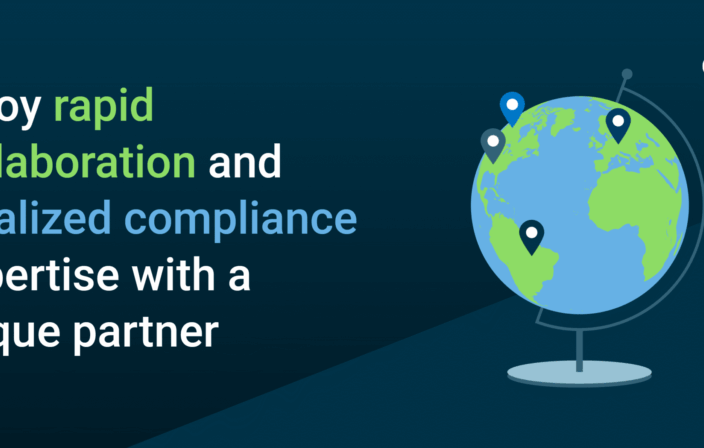Welcome back to Accessibility Reads! Between international travel, some fantastic events, and an enjoyable holiday break, it’s been several weeks since we caught you up on the latest in accessibility news, so we’ve got lots to share with you today!
In my short video below, I talk about some of the most compelling new stories from the accessibility space. I explore their significance and explain why I recommend that you check them out. Please enjoy!
Do you have a story you think we should read? Please share it on social media, and make sure to tag us! You can also leave a comment on this post.
Featured articles
Artificial intelligence (AI) is everywhere in the news these days, and it’s often a contentious and controversial topic. I’m happy to share, however, that in the accessibility space, we’re seeing a lot of very promising developments. The following two stories offer great examples of this:
As part of the Developing Artificial Intelligence (AI) Equity, Access & Inclusion for All series, the U.S. Access Board will present its preliminary findings on the risks and benefits of AI for people with disabilities. The findings are based on the outcomes of three recent AI hearings held in August 2024, independent research and engagements, as well as comments received from the public. The presentation will take place virtually on Thursday, December 12, 2024.
Meanwhile, the latest research shows that AI is already proving to be a powerful enabler and leveler for talent with disabilities. This is positive news to benefit the untapped potential within underrepresented groups, including persons with disabilities, as global talent scarcity continues to grow. One such talented individual is Taylor Arndt, a blind and neurodivergent developer who is using AI to overcome coding challenges.
Another important story that recently emerged highlights the financial impact of accessibility (or, in this case, the lack thereof!):
New research shows that Dutch web shops are missing out on an estimated €4.2 billion in turnover because their websites are not accessible to people with disabilities. These findings point to a clear opportunity for web shops in the run-up to the EAA becoming law in June 2025. In addition, Dutch airports are actively reviewing the impact of EAA regulations on their operations.
More stories
Below, I’ve gathered some additional links to compelling stories that I think are well worth exploring:
Finally: Microsoft catches up to Apple with its integration of OCR in the Windows Photos app – a major leap for accessibility
Microsoft is adding Optical Character Recognition (OCR) to the Windows Photos app, enabling users to scan and copy text directly from images. When it is officially released, this feature will be available on Windows 11 and Windows 10.
Why accessibility shouldn’t compromise on aesthetic
SomeOne founding partner Simon Manchipp delves into their recent project with the Motability Scheme, explaining why brands in this sector need to change.
W3C web accessibility work boosted by Ford Foundation core funding
W3C is the recipient of a major Ford Foundation grant for the development of web accessibility standards, guidelines, and implementation resources to support access for people with disabilities.
Industrial Design Case Study: Nike’s Accessible Backpack
Nike’s Elite EasyOn, originally designed for Paralympians, is now available to all.
Purina’s Bakers is first pet food brand to announce use of NaviLens technology
Much-loved pet food brand Bakers keeps millions of dog tummies happy and healthy each year. Starting in early 2025, Bakers will also be supporting blind or partially sighted dog owners when it launches NaviLens codes on their packaging.
How to Provide Quality Flight Experiences to People with Disabilities
Kjell Mathisen, corporate training manager at Aviator Airport Alliance, outlines the details of what goes into ground handlers’ efforts to provide accessibility.
Beloved singer-songwriter discusses hearing loss in interview: ‘I don’t think creativity stops with disability’
Legendary singer-songwriter Paul Simon recently opened up about his loss of hearing when he explained to The Times that he began having issues in his left ear while working on his album Seven Psalms. “Quite suddenly, I lost most of the hearing in my left ear, and nobody has an explanation for it. So everything became more difficult.”
New Film ‘Daruma’ Wants To Show Disability Isn’t Synonymous With Despair
Daruma is lauded as “the first film in US cinematic history to star two authentically cast disabled leads in a narrative not about overcoming disability.” It will be shown in brick-and-mortar theaters and will also be available to rent or buy on Amazon.
14-Year-Old Boy with Learning Disabilities Becomes Entrepreneur Who Makes Up to $5K an Hour
When he was nine years old, Tucker Findley couldn’t read or count past ten. Now fourteen, the young businessperson tells PEOPLE how selling golf balls transformed his life and how he became an entrepreneur who makes up to $5,000 an hour.
This week’s recommended read
If you read just one thing this week, I recommend this story:
Workers fighting to improve video interpretation services for deaf people face a huge obstacle: private equity groups with a stranglehold on the market. This expose looks at how Wall Street took over a vital sign language service—and started union-busting.
Bonus content!
Here’s a little something from the gaming world for you:
Independent game developer shiftBacktick has released Periphery Synthetic, which is a combination of the action-adventure and platformer subgenres, designed for players who are blind or have low vision. It is a fully accessible and non-violent exploration experience where you survey a planetary system in an upgradable exosuit and uncover its mysterious past. The trailer video shows the portals that connect its musical playgrounds. Featured are the moving sands and buried structures of Alpha Periphery B, the falling snow and icy cliffs of Alpha Periphery C2, and the dynamic waves and sprawling caves of Alpha Periphery C. The trailer closes with quick cuts of each of the worlds eclipsing their parent star from orbit.
Conclusion
Thank you for joining me for Accessibility Reads, and please stay tuned for our next edition. In the meantime, please visit deque.com to learn more about how we’re advancing digital accessibility and inclusion across the globe.
Is your business ready to expand and enhance your digital accessibility efforts? Schedule a free strategic consulting session today!




